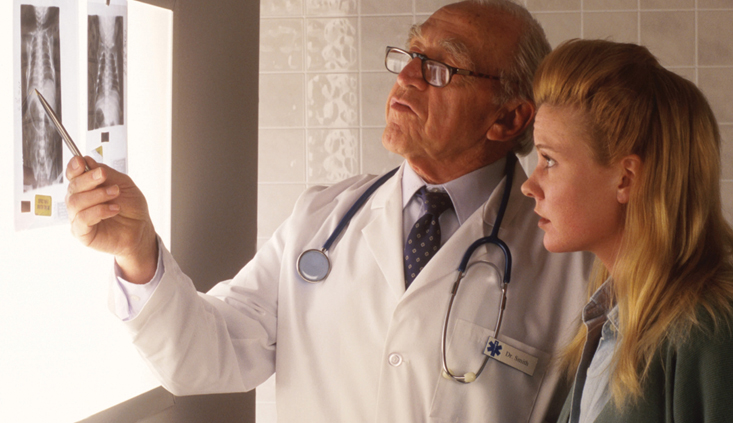The treating physicians as witnesses
The doctors that the jury really wants to hear from
In our work-up of cases, we are accustomed to hiring medical experts. Many of us have a certain few that we always use. Many of us are familiar with a handful of medical conditions common in our cases, and we have grown used to hiring the same experts we have always relied on, that specialize in those conditions. When we assess a new case, we immediately think of which of our experts we will use to explain the medical condition, history and prognosis. All of us rely heavily on retained medical experts.
In all of these cases, our clients have seen or are seeing treating physicians (or nurses, chiropractors, and physical therapists). We review the medical records and note the opinions of these treaters, but we often relegate these treaters and favor our experts. We pay for our experts, and often believe that because we have spent so much money on them, we need to use them extensively and in every way possible. We know that because our experts are retained by us, they are easy to reach, easy for us to get along with, understand the litigation process, will testify smoothly and professionally – and of course, will provide us the opinions we are hoping will support our cases. Treaters do not provide these comforts.
The jurors’ choice
Our personal comfort aside, who do the jurors want to hear from? Jurors say time and time again, in after-trial interviews, that the doctors they most wanted to listen to and found most credible were the treaters. In fact, a jury will often disregard both sides’ experts if there is a treater available to testify. What we as attorneys often put aside in jury trials is the intelligence of the jury – a mistake in many ways.
Jurors know what it means to be an expert and how experts make a living. Even before this is covered in direct or cross examination, jurors know that our experts are paid by the parties and that they are likely to give an opinion favorable to the side that is paying them. Jurors know that these experts are professional witnesses, and jurors do not trust them. Although we as attorneys appreciate the polish and sophistication of our experts, jurors can find this behavior arrogant and suspect.
Treaters, on the other hand, have often seen our clients for long periods preceding the incident, know the histories of our clients, have relationships with our clients outside of the litigation and are therefore, inherently more credible to juries. They are not being paid by either side except for any hours testifying, and are usually full-time practitioners. Jurors know all of this.
Treaters as witnesses
In order to best serve our clients in trial, we should give the jury the witnesses they want to hear from; we should change our perspective and begin putting our treaters out in front. The challenge is how best to do this. Treaters usually have schedules that do not provide any opportunity to talk with attorneys. They are often averse to litigation. For these reasons, again, we tend to rely on our experts – treaters by nature of their jobs can be difficult to reach and work with.
First, in considering and then taking a new case, it is critical to find out all of the treaters’ identities and opinions, and obtain medical records immediately. Following, the records must be reviewed to gain an understanding not just of the injuries and history, but also to learn the opinions of the treaters you will either want to rely on, or with whom you will need to deal, once the opinions are discovered by the defense. Next, consult with your client. Find out your client’s take on each treater – who is approachable, who is oppositional. Once you have an idea of what you are dealing with, call the treaters. If you cannot get through by phone, talk with an assistant or nurse and ask for a phone consult or a meeting.
Attorneys shy away from this because of how it “might look” to the other side during deposition or trial. Provided you keep your conversations with the treaters on certain topics, there should never be an appearance of something negative. When you talk with a treater, explain who you are and what the lawsuit is basically about. Do not be an advocate; be straightforward and to the point. Share with the treater what the defense’s basic position is. If the defense is taking the approach that your client should have recovered from a brain injury and any complaints of memory loss are now related to something else, let the treater know this. Explain to the treater that you are interested in talking to learn more about your client’s treatment, symptoms and prognosis.
As you will likely learn, the treater will not know very much if anything about the litigation and will be grateful for the background from you. Then you will have formed a foundation with the treater. Should a defense lawyer ask about this conversation during a deposition or trial, there is nothing the treater would say in response that is damaging to you or your client.
Once you have formed this relationship, should you find any of the opinions helpful to you – ask to meet with the treater before she or he is deposed to prepare for the deposition. Most treaters will not be represented by counsel at deposition and will appreciate some time to talk ahead of time to prepare. During this conversation, you will be able to discuss opinions with the treater that you can then use to shape your case both for mediation and for trial. Ideally, if you are using medical experts as well, you will be able to ascertain opinions from your treater that are then underscored by your experts, rather than the other way around. Additionally, if you have built a relationship with your treater, you may be able to discuss the facts surrounding the injury and gain helpful opinions regarding causation. Once your treater has an understanding of the case and how the incident occurred, she or he may be more inclined to opine regarding how it happened. Though often contested by the defense, treaters may provide opinions regarding causation according to Schreiber v. Estate of Kiser (1999) 22 Cal.4th 31, and you should use this to your advantage whenever possible.
Leading up to trial, it is critical to include all treaters as non-retained experts in disclosure. Though the list may be long, it is well worth the effort to include each one. Despite how the case has gone so far, new opinions may emerge during expert discovery or trial and suddenly, an otherwise unhelpful treating opinion may now be essential to the case during trial. No expert declaration is required for non-retained treaters, according to Schreiber v. Estate of Kiser (1999) 22 Cal.4th 31; the treaters simply need to be listed. Defense counsel will often rely on Kalaba v. Gray (2002) 95 Cal.App.4th 1416 to argue that treating experts are precluded from testifying as experts at trial if not properly disclosed – but in Kalaba, the plaintiff submitted an expert disclosure that had “‘reserve[d] the right to call as potential experts any and all [of her] past or present examining and/or treating physicians . . . ,’” but had failed to designate these physicians by name. (Id. at 1418.) Provided the treaters are listed by name, under Schreiber, they will be permitted to testify at trial.
At trial, tell the jury who the treater is and why that treater can add something helpful to the case. Let the jury know right up front, in your first question, that this is not an expert and this is someone to listen to. Establish during your questioning that this treater is a full-time practitioner and where the treater works. Oftentimes, jurors will value the treater even more, knowing that the treater works at the same hospital they go to. If the treater specializes in an area, draw this out quickly as well. Do not spend too much time wading around in background and experience but let it be known to the jury that this person is distinguished in such a way that his or her opinion will be of value in the case.
We spend so much time talking about the specialties and qualifications of experts – treating physicians are often far more qualified to give opinions, but their backgrounds are marginalized. If there are hand-outs your treater gives to patients or gave to your client regarding your client’s condition, ask your treater to have a copy at trial. It may or may not be allowed in as evidence by the judge – but if it is, it becomes a helpful roadmap for the jury in deliberations.
Treating physicians can be an outstanding resource for our cases and if handled well, can be valued witnesses at trial. With the right approach and focus, the exceptional experience and knowledge that treaters have can be used to benefit our clients.
Katherine Higgins

Katherine Higgins is a trial attorney on the Peters trial team with The Veen Firm in San Francisco. She handles a wide range of cases involving catastrophic injury and wrongful death, arising from negligence, premises liability and products liability primarily. Ms. Higgins has extensive trial experience from her background in both the civil and criminal courts. Ms. Higgins has been awarded the Northern California Rising Star commendation for 2011, 2012, and 2013, and has been chosen as one of the Top Women Attorneys in Northern California in 2012 and 2013.
Copyright ©
2026
by the author.
For reprint permission, contact the publisher: Advocate Magazine

